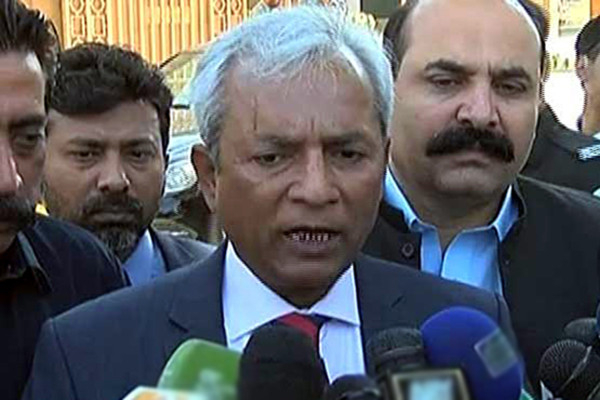
The reaction to a couple of recent landmark court verdicts in Pakistan has served well to point out the sharp contradictions surrounding the ways in which justice ought to be served.
Nihal Hashmi, a former member of the Senate (Upper House of parliament), was recently barred by Pakistan’s Supreme Court from holding political office for five years and sent to jail for a month. He was punished for his vocal and public outburst last year, targeting the courts and investigators probing former prime minister Nawaz Sharif and his children on charges of corruption.
The outcome of this widely publicised case has been seen by many of Sharif’s backers as an “excessive punishment”. As Hashmi at the time of his crime was serving as a member of the Senate, some even suggested that the settlement of such political matters must eventually rest with the parliament.
Meanwhile, in the past one week, an anti-terror court handed down the death sentence to one individual in the widely publicised case of Mishal Khan, a university student who was tragically lynched to death, last year. Khan was killed by a mob on accusations of blasphemy, which were later found to be untrue. Five others were given jail terms of 25 years each, while 25 others were given jail terms ranging from one to three years.
The two cases were indeed radically different. There can be no comparison between the two crimes — the matter of mob justice as opposed to the case of a vocal politician who was clearly out of line. And yet, the reaction from some of Hashmi’s co-politicians seeking to defend him on political grounds was mind boggling.
Misuse of authority
The bottom line in this or any other matter is just one. There can be neither exceptions in the way justice is applied nor exclusions for a class of individuals such as politicians.
Sharif’s dismissal by the Supreme Court last year was a rare event in a country where members of the ruling class from yesteryears have been let off the hook on charges ranging from misuse of authority to large-scale corruption. Though the top court’s action has begun to restore confidence in the judicial system, a far more comprehensive clean-up is needed to be done.
A piece of anecdotal evidence from everyday life across Pakistan is the very obvious matter of traffic policemen in the big cities who routinely stop riders on two-wheelers for routine checks. Sometimes, owners of small cars and rickshaws are also stopped. However, those travelling in bigger and expensive vehicles are seldom stopped. The obvious difference here is of class. The richer segments of Pakistani society are let off, even if they are found to be in the wrong, while members of the poorer segments are made to suffer.
This unfortunate story begins with the hapless conditions on Pakistani roads and goes right up to the top tiers of the ruling structure. Sharif, disqualified last year by the Supreme Court, still goes around from one public gathering to another with just one question: “Mujhey kiyoun nikala” (why was I removed from power?).
Though Sharif’s vociferous claim has increasingly fallen on deaf ears across Pakistan, where many are tired of being ruled by one set of controversial politicians after another, there is a very serious dimension to this sordid saga.
With the former prime minister defying the highest court in the country publicly, why should ordinary Pakistanis feel compelled to show respect for the judicial system? To that compelling question, there is just no credible answer.
Going forward, Pakistan must embrace a two-pronged approach to improve not only the cause of justice, but more importantly, the success of that change must stand central to the very future of Pakistan as a progressive country.
An iron-clad outcome
On the one hand, it is vital that members of all segments must accept the finality of the judicial system in handing down the verdict on matters brought to the attention of the courts. Even though there are provisions for appeals in lower courts, a final verdict by the Supreme Court must be accepted as an iron-clad outcome.
Repeatedly questioning a verdict, as Sharif has done, not only strikes at the heart of a legal system surrounded by multiple challenges, but, more importantly, it promises to add to the disarray that Pakistan faces today.
On the other hand, part of the responsibility for improving the application of justice remains with the ruling structure. The recent case of the arrest of a serial rapist in the city of Kasur, after the unfortunate killing of a child, Zainab Ameen, offers much food for thought. She was the eighth victim of her alleged rapist.
The public outcry over her killing across the media and protests in Kasur have forced the provincial government of Punjab to gather all its resources to investigate the matter. To date, no one from the ruling elite has convincingly explained exactly why a similar push was never undertaken, following the killings of each of the seven previous victims.
Farhan Bokhari is a Pakistan-based commentator who writes on political and economic matters.










